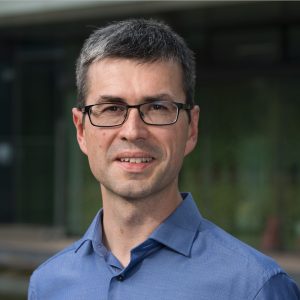Keynote Speakers
Francesca Rossi

Bio: Francesca Rossi is an IBM Fellow and the IBM AI Ethics Global Leader.
She is based at the T.J. Watson IBM Research Lab, New York, USA, where she leads AI research projects.
Her research interest span various areas of AI, from constraints to preferences, from graphical models to social choice, to neuro-symbolic AI. She is a fellow of both AAAI and EurAI. She has been the president of IJCAI and she will be the next president of AAAI. She also co-chairs the IBM AI Ethics board and she participates in many global multi-stakeholder initiatives on AI ethics, such as the Partnership on AI and the Global Partnership on AI.
Title: AI Ethics in the Semantic Web
[Slides]
Abstract: AI is going to bring huge benefits in terms of scientific progress, human wellbeing, economic value, and the possibility of finding solutions to major social and environmental problems. Supported by AI, we will be able to make more grounded decisions and to focus on the main values and goals of a decision process rather than on routine and repetitive tasks. However, such a powerful technology also raises some concerns, related for example to the black-box nature of some AI approaches, the possible discriminatory decisions that AI algorithms may recommend, and the accountability and responsibility when an AI system is involved in an undesirable outcome. Also, since many successful AI techniques rely on huge amounts of data, it is important to know how data are handled by AI systems and by those who produce them. These concerns are among the obstacles that hold AI back or that cause worry for current AI users, adopters, and policy makers. Without answers to these questions, many will not trust AI, and therefore will not fully adopt it nor get its positive impact.
In this talk I will present the main issues around AI ethics, some of the proposed technical and non-technical solutions, as well as practical actions and regulations being defined for AI development, deployment, and use. I will also highlight the relevance of some AI ethics issues to the semantic web.
Ilaria Capua

Bio: Professor Ilaria Capua, DVM, PhD. Director, One Health Center of Excellence, University of Florida – USA.
Ilaria Capua is full professor and Director of the One Health Center of Excellence at the University of Florida. She has worked in veterinary virology for over 30 years directing laboratories of international stature and has served as an elected representative in the Italian Parliament for over three years (2013-2016). She is a regular columnist for the Italian mainstream press and the author of several books.
In her career as a virologist she dedicated most of her professional life to viral infections of animals that can be transmitted to humans and pioneered genetic data sharing to improve pandemic preparedness. She has authored over 230 publications in peer reviewed journals and has published scientific books on Avian Influenza and Newcastle disease and ten books for the general public, including children and teenagers. She is a member of the European Academy of Sciences.
Her research is now focusing on a novel, broader approach to health known as Circular Health which aims to co–advance the health of humans, animals, plants and the environment by addressing health as a system.
Title: Circular Health
Abstract: Pandemics are unique and transformational events as they shake lives by exposing the vulnerability of Homo sapiens to previously unknown pathogens, which become widespread as most human beings on the planet will become infected. But Covid-19 has done much more than this. It has exposed us to another type of vulnerability – the vulnerability of the systems we operate in. It has also opened our eyes to the harsh reality that we live in a closed system, in which we are entirely interconnected and interdependent with other creatures on planet earth. This awareness has paved the way to acknowledge that as a society we should embrace the One Health approach which recognizes the links between the health of humans, animals, and the environment.
Covid 19 has also shown us that such a major health crisis has multiple drivers and ramifications that include social, economic, and digital drivers that have caused the pandemic to unravel in the way it did. In addition Covid 19 is the most measured event in history and oceans of big data have been generated during this event.
Since the turn of the millennium we have been experiencing several other challenges which concern our closed system and affect our health, for instance the climate and food crises. For example, we are aware of the devastating effect of rising temperatures on the health of our oceans, on the loss of biodiversity and on the migration of humans and animals. We are also well aware that the planet’s demographics will require more food to feed a world population expected to reach 9.7bn by 2050 and at the same time we have committed to diminishing greenhouse gas emissions to reduce pollution and CO2 footprint.
Following the conceptual blueprint of Circular Economy and Circular Agriculture, this could be the right time to expand our approach to health to a circular model which encompasses the intricate and novel links between human health and the health of this closed system. This circular approach would be data driven and could be implemented by using the Sustainable Development Goals (SDGs) roadmap as an accelerator of convergence for health. All the 17 goals have ties to the health of humans, animals, plants, and the environment, and it would seem reasonable to prioritize certain activities and capitalize on existing guidelines and commitments.
The novelty of the Circular Health approach is to use post-Covid-19 renewed health priorities to promote the convergence of health-related issues which can be achieved within the Sustainable Development Goals framework. In this way it will be possible to advance urgent health priorities within an existing framework which aims at sustainability and at advancing health as an essential resource within a closed system, which needs to be regenerated and addressed in its complexity.
Markus Krötzsch

Bio:Markus Krötzsch is a full professor for Knowledge-Based Systems at TU Dresden.
He obtained his Ph.D. from Karlsruhe Institute of Technology (KIT) in 2010, conducted his post-doctoral research at the Department of Computer Science of the University of Oxford, and moved on to establish his research group at TU Dresden in 2013. His work spans from the theory of knowledge representation and formal logic to practical applications in knowledge graphs and symbolic AI. He has made influential contributions to Wikipedia’s free knowledge graph Wikidata, to the W3C Web Ontology Language OWL 2, and to several open source reasoning systems. His current interests include rule-based computation, ontological query answering, efficient reasoning, and the use of these methods in explainable and trustworthy AI applications.
Title: Data, Ontologies, Rules, and the Return of the Blank Node
[Slides]
Abstract: The Semantic Web has long been characterised by the parallel de- velopment of machine-readable data and ontological models. Inspired by very different backgrounds – Web data exchange and mathematical logic – the two worlds have sometimes be perceived as complementary, even conflicting. But the general trend towards knowledge graphs made such discussions irrelevant, and modern knowledge models, such as Wikidata, often combine instance and schema data side by side. In my invited talk, I will explain how this unification of data and ontology may present an opportunity to the Semantic Web, and discuss how recent results in rule-based reasoning may provide a basis for overcoming related challenges. This involves some interesting insights about the expressive power that is conferred by extending rules with value invention – the ability to create fresh blank nodes. Besides the theoretical effects of this addition, we can also demonstrate concrete practical uses of this expressive power.
